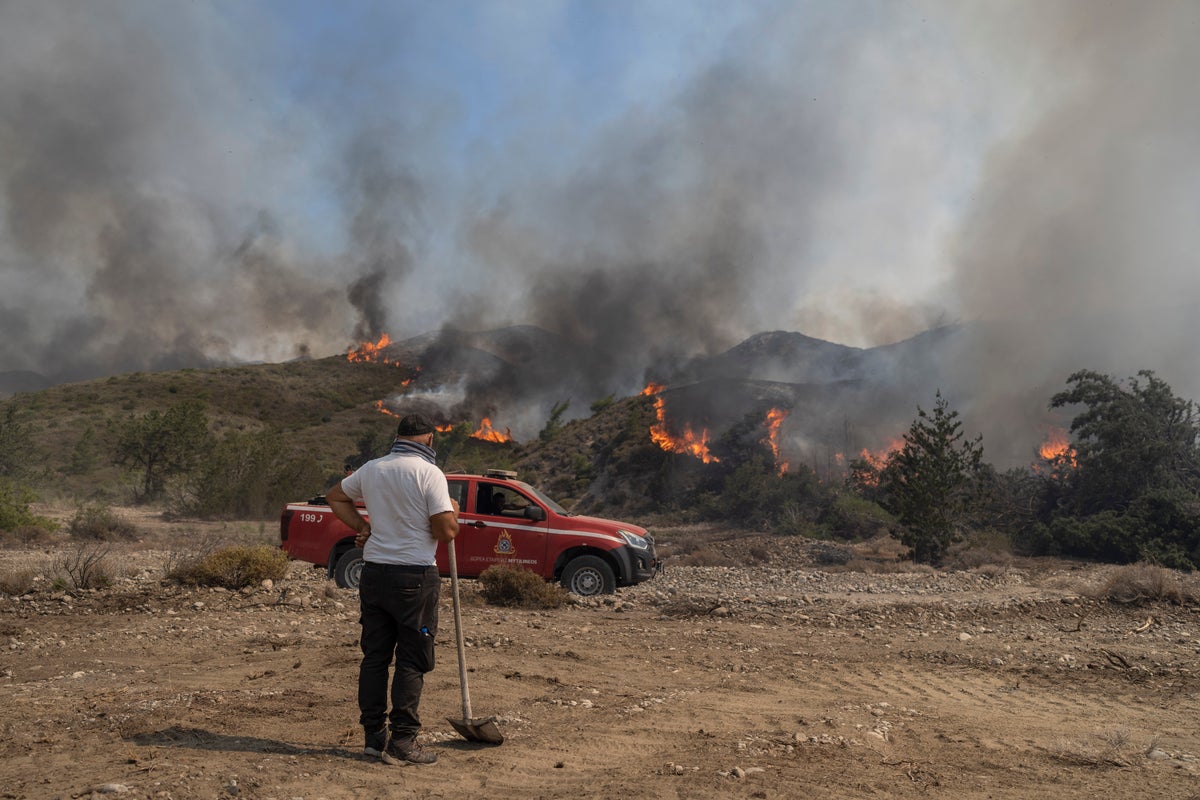
As tourists start to trickle back to the Greek island of Rhodes, some people are spending their vacation on empty beaches amongst charred trees and burnt land.
The fires, spurred by a sweltering heat wave that blanketed the country, triggered a huge evacuation of residents and tourists on the island last weekend as forests burned for a week.
As wildfires scorched the land, tourist and residents worked to extinguish fires by seaside resorts. By Friday, temperatures eased somewhat, and calmer winds helped firefighters contain the blazes.
But the damage was already done.
An inland nature reserve was damaged. The deserted island has been promised state support.
Fires have been raging across Greece, including outside the capital Athens and in Rhodes, fueled by three consecutive heat waves. Five people have died in the fires, including two firefighter pilots. Temperatures pushed 40 degrees Celsius (104 degrees Fahrenheit).
Climate change is making the world hotter and is charged this year by the natural and cyclical El Nino event, which warms the Pacific. The Mediterranean – from Spain to Turkey to North Africa — has withered under record-breaking temperatures over the summer. July is the hottest month globally ever recorded, and it's likely 2023 will be the hottest year.







